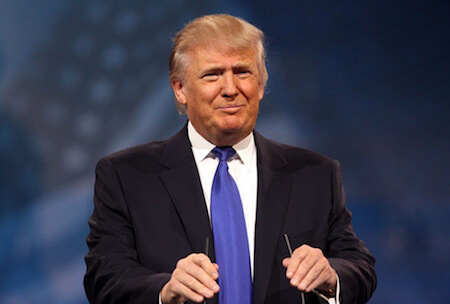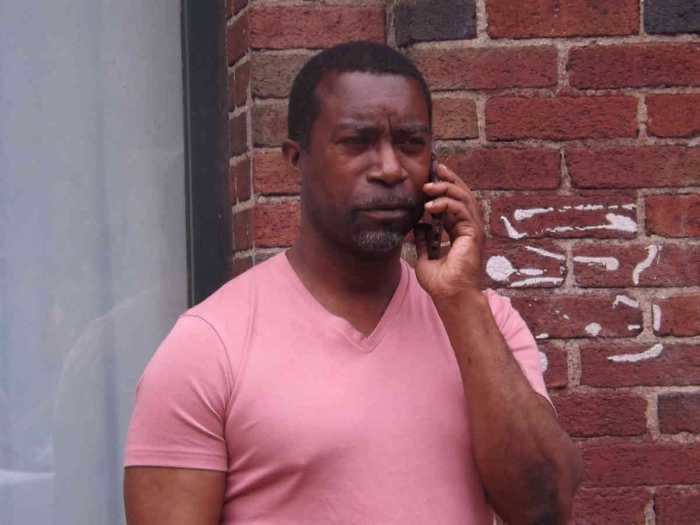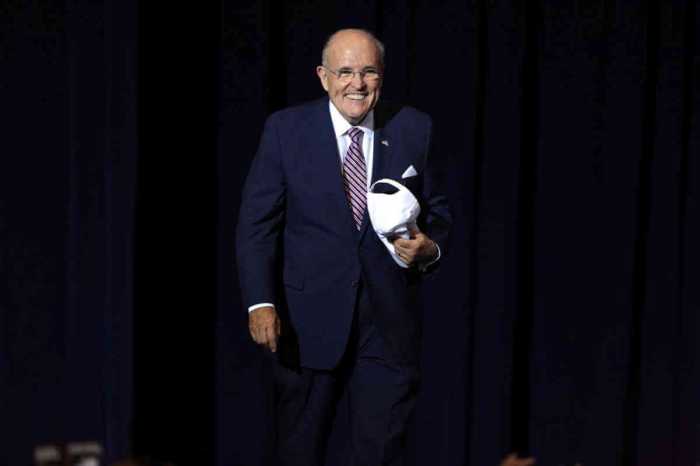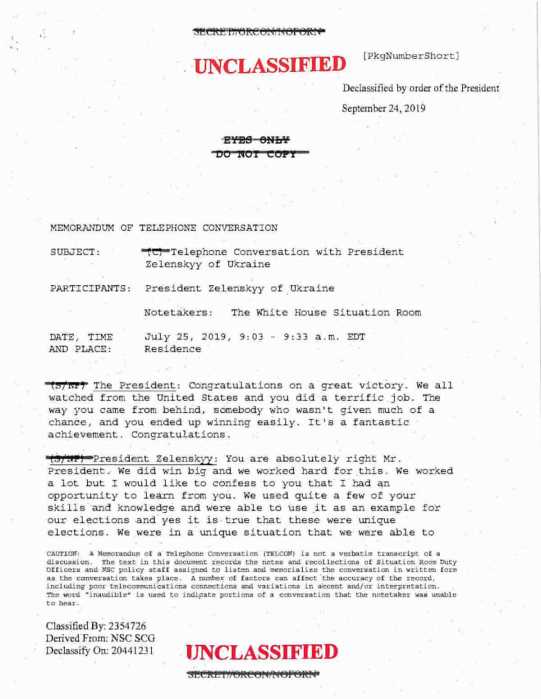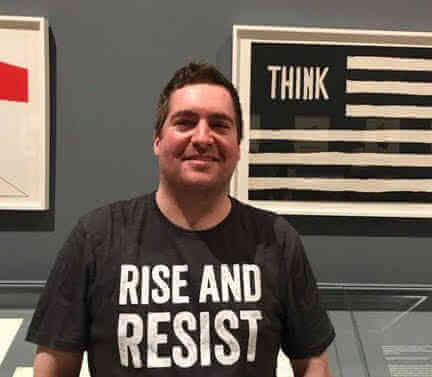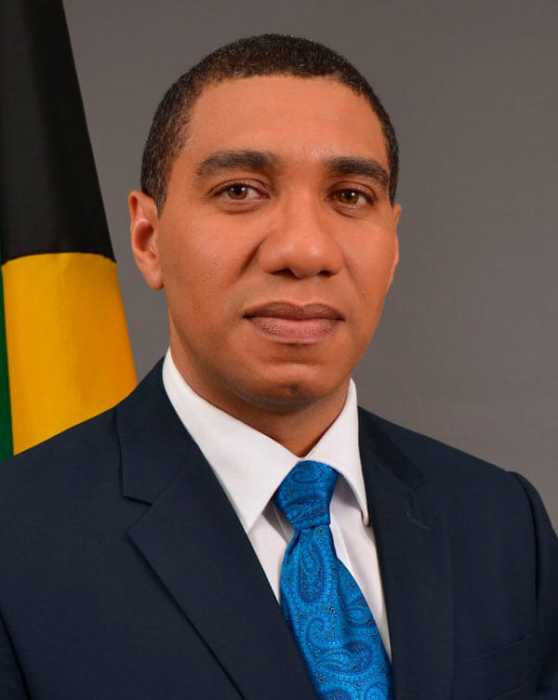In an April 21 appearance on NBC’s “Today Show,” Donald Trump, the Republican presidential primary frontrunner, weighed in on the simmering controversy over transgender access to public bathrooms in a way that gave his leading rival, Texas Senator Ted Cruz, hope he’d been handed a perfect wedge to fire up the party’s socially conservative base.
“North Carolina did something that was very strong and they’re paying a big price,” Trump said of that state’s new law restricting bathroom access based on an individual’s gender as indicated on their birth certificate. “And there’s a lot of problems. Leave it the way it is. North Carolina, what they’re going through, with all of the business and all of the strife — and that’s on both sides — you leave it the way it is. There have been very few complaints the way it is. People go, they use the bathroom that they feel is appropriate. There has been so little trouble. And the problem with what happened in North Carolina is the strife and the economic punishment they’re taking.”
Cruz wasted no time in striking out.
“Should a grown man pretending to be a woman be allowed to use the women’s restroom?,” a Cruz ad released the following day said. “The same restroom used by your daughter? Your wife? Donald Trump thinks so.”
Then, going for the jugular on one of Trump’s signature claims, the ad continued, “It’s PC nonsense that’s destroying America. Donald Trump won’t take on the PC police. He’s one of them.”
Trump promotes himself as dealmaker-in-chief who will bring jobs back to America, and his comments about the North Carolina law reflected a businessperson’s sense that, in responding to a problem of which there was no evidence, it was hurting that state’s economy needlessly.
But some observers saw something deeper there — a willingness on Trump’s part to stand up to the Republicans’ excessive catering to the party’s base of social conservatives. A day after Trump’s North Carolina comments, the New York Times took that angle one big step further, writing that “it is his views on gay rights and gay people that most distinguish Mr. Trump from previous Republican standard-bearers” — quite a claim about an iconoclast who has just about ripped up the entire playbook of GOP orthodoxy.
The Times’ evidence was something less than overwhelming, in a story that opened with Trump blogging his congratulations to Elton John and David Furnish when they entered into a civil partnership in the UK a decade ago.
“If two people dig each other, they dig each other,” Trump wrote at the time.
Seven years later, the Times reports, Trump attended the wedding of Jordan Roth, a Broadway producer, and talent manager and TV producer Richie Jackson.
As Hillary and Bill Clinton’s attendance at Trump’s most recent marriage demonstrates, however, in the real estate mogul’s world showing up at a high profile ceremony doesn’t necessarily equate to the sort of bond most people enjoy with guests at their wedding. When out gay actor George Takei, who knew Trump from having been bounced from “The Celebrity Apprentice,” had lunch with him a couple of years ago to press him on the marriage equality issue, Trump insisted he was sticking with his allegiance to “traditional marriage.”
The Times piece offers a grab bag of other details — $25,000 given to Gay Men’s Health Crisis in 1987, opening up his Mar-a-Lago resort in Florida to gay couples, and (in the story’s biggest stretch) nuzzling up to Rudy Giuliani during the then-mayor’s drag appearance at a 2000 political roast.
The one substantial bit of evidence the Times provided — other than the recent North Carolina comments — is Trump’s endorsement, in a 2000 interview with the Advocate as he considered a presidential run that year, of amending the 1964 Civil Rights Act to include nondiscrimination protections based on sexual orientation. It might have been that position that led Gregory T. Angelo, president of the Log Cabin Republicans, to tell the Times, “He will be the most gay-friendly Republican nominee for president ever.”
Revisiting Trump’s comments to the Advocate about the Civil Rights Act, however, suggests that he was as much interested in political grandstanding as he was in promoting the interests of the gay community.
“I like the idea of amending the 1964 Civil Rights Act to include a ban of discrimination based on sexual orientation,” he said. “It would be simple. It would be straightforward. We don’t need to rewrite the laws currently on the books, although I do think we need to address hate-crimes legislation. But amending the Civil Rights Act would grant the same protection to gay people that we give to other Americans — it’s only fair.”
That’s a position that would win Trump praise today, especially if he were to include gender identity, as well. In fact, that is precisely the current focus of the community’s anti-bias efforts in Washington.
It’s telling, however, that Trump then segued into an attack on Democrat Bill Bradley, the former New Jersey senator who was then challenging Vice President Al Gore for his party’s nomination. It’s this part of the interview that sounds most vintage Trump.
“I actually suggested this first, and now I see Bill Bradley has jumped on the bandwagon and is claiming the idea as his own,” Trump told the Advocate. “Let me tell you something. Bradley is as phony as a $20 Rolex. He says the president ought to have big ideas. His last big idea — the 1986 [Tax Reform Act] — caused a recession and cost thousands of people their jobs. This guy destroyed the real estate industry, and he tanked the S&Ls. It was a disaster. Bradley walked out of the Senate like he was some kind of statesman declaring that ‘politics is broken.’ The truth is, the voters were going to dump him in New Jersey. He walked away. Now he poses as some kind of outsider. What a joke. Bradley was a member of the Senate Finance Committee and a longtime part of Washington establishment. When I was $900 million and my companies were $9 billion in debt, I didn’t walk away. While others were declaring bankruptcy, I clawed my way back. My businesses are now bigger and better than ever.”
Over the years, Trump reiterated the basic view that gay and lesbian Americans should not face discrimination. As he toyed with the idea of a 2012 presidential run, however, he began to waffle on that position. Unwilling to endorse full marriage equality, he was asked by the Des Moines Register, in 2011, whether he would support civil unions offering all the legal benefits of marriage. At first, he said, “My attitude on it has not been fully formed,” but he quickly added, “As of this moment, I would say no and no” regarding same-sex couples enjoying either marriage or civil unions.
That same year, he seemed to practically brag to the Christian Broadcasting Network, “I live in New York. I know many, many gay people. Tremendous people… I’m against gay marriage; I took a lot of heat for that.”
The inconsistencies of Trump’s posture have only increased in the current campaign as he addresses resistance to last year’s Supreme Court marriage ruling and pressure from the right wing for special religious carve-outs from nondiscrimination protections affecting the LGBT community.
When Kim Davis, the renegade Kentucky county clerk who refused to issue marriage licenses to same-sex couples, faced jail, Trump initially told MSNBC’s “Morning Joe” that the high court ruling was “the law of the land” and “you have to go with it,” and, on Fox News’ “O’Reilly Factor” said that being a county clerk “was not the right job for” Davis.
A few weeks later, however, in speaking to social conservatives gathered at the annual Values Voter Summit in Washington, Trump said of Davis, “I haven’t been opposed to her stand, and I think it’s fine.” At the fall dinner of the Iowa Faith and Freedom Coalition, also held last September, Trump was asked about government officials being required to act contrary to their religious beliefs and responded, “I feel so strongly in fact, it was mentioned in my second paragraph. Religious liberty is so important.”
A few days later, Trump told the Christian Broadcasting Network, which asked about bakers being required to sell cakes to same-sex couples for their weddings, “I’m very concerned about it and there’s going to be a lot of law issued about it.”
It is fair to note that Trump has never run with this ball to the degree that others — notably Cruz, but also Florida Senator Marco Rubio and Ben Carson — have, particularly on the question of the First Amendment Defense Act (FADA), a measure that would provide businesses and non-profit agencies a religious out from nondiscrimination obligations based on their beliefs about same-sex marriage. Late last year, three right wing groups — Heritage Action, Family Research Council Action, and the American Principles Project — asked GOP contenders to commit to enacting FADA in their first 100 days in office, something Cruz, Rubio, and Carson quickly agreed to.
Trump declined to offer any guarantee, but told the groups, “If Congress considers the First Amendment Defense Act a priority, then I will do all I can to make sure it comes to my desk for signature and enactment.”
Maggie Gallagher, a longtime warrior against marriage equality, was not satisfied, writing, in National Review, that while Trump is happy to offend Mexicans, Muslims, and Megyn Kelly, there is one group he “strives not to offend” — the “politically potent” gay community.
Trump, however, also seems eager not to let Gallagher’s unhappiness with him infect others on the right. In a February GOP debate in Houston, he was asked whether he was willing to make religious liberty “an absolute litmus test” guiding all of his judicial appointments — from federal district courts to the Supreme Court.
“Yes, I would,” he responded. “And I’ve been there. And I’ve been there very strongly.”
Trump’s willingness to pledge fidelity to the views of social conservatives about court appointments is also where his views on marriage equality have now arrived. In 2000, when he told the Advocate he did not support the freedom to marry, he assured the community he supported “a very strong domestic partnership law that guarantees gay people the same legal protection and rights as married people.”
By 2011, of course, he was hedging that statement, telling the Des Moines Register “at this moment” he wasn’t there on the issue. The same year, he told Bill O’Reilly on Fox, about same-sex marriage, “I just don’t feel good about it. I don’t feel right about it.” After telling “The Today Show” in 2013 that he was “evolving” on the issue, Trump entered the 2016 race still in favor of “traditional marriage.”
His initial response to last June’s Supreme Court ruling reflected the same kind of pragmatism he showed in his recent comments about North Carolina. While stating his opposition to the decision and his view that it should have been worked out state by state, he added that even “the most militant” opponents of marriage equality “are saying there’s nothing you can do. Because they’re talking about constitutional amendments, and then they go on to say that that could never happen. So, at a certain point you have to be realistic about it.”
Significantly, he told the Hollywood Reporter that “anybody that’s making that an issue is doing it for political reasons.”
It wasn’t long, however, before Trump hedged. In October, in talking about the marriage ruling, he told the Christian Broadcasting Network, “We have some very terrible Supreme Court justices.” In January, asked by Fox’s Chris Wallace if he would “try to appoint justices to overrule the decision on same-sex marriage,” Trump responded, “I would strongly consider that, yes.” He added, “If I’m elected, I would be very strong on putting certain judges on the bench that I think maybe could change things.”
In the wake of Justice Antonin Scalia’s death, Trump has repeatedly cited Justices Clarence Thomas and Samuel Alito — the high court’s two most stridently anti-gay members — as his models for future appointees. At an appearance with televangelist Pat Robertson at Regent University on February 24, days after Scalia’s death, Trump said, “I’ve always said Justice Thomas doesn’t get enough credit.”
Among the names Trump has floated as potential Supreme Court nominees is 11th Circuit Court of Appeals Judge William H. Pryor, Jr., a former Alabama attorney general whom Lambda Legal termed “the most demonstrably anti-gay judicial nominee in recent memory” when President George W. Bush appointed him to the appeals court in 2005.
In yet another appearance on the Christian Broadcasting Network, this one in February, Trump said of evangelical voters, “I think they can trust me. They can trust me on traditional marriage. I was very much in favor of having the court rule that it goes to states and let the states decide. And that was a shocking decision for you and for me and for a lot of other people.”
The dizzying contradictions in Trump’s views on LGBT rights are ironic given his reputation for “telling it like it is” and for eschewing “political correctness.” It also brings to mind the frantic flip-flops he engaged in on the question of abortion in late March and early April, after telling MSNBC’s Chris Matthews that “there has to be some form of punishment” for women who run afoul of any new restrictions a Trump administration might enact regarding the right to choose. Even before the Matthews interview aired, his campaign issued a clarification, saying should federal law change, “the doctor or any other person performing this illegal act upon a woman would be held legally responsible, not the woman.”
Two days later, Trump compounded his problems by telling CBS, “But right now, the laws are set… At this moment, the laws are set. And I think we have to leave it that way.” Once again in damage control mode, the campaign rushed out another clarification, saying, “Mr. Trump gave an accurate account of the law as it is today and made clear it must stay that way now — until he is president. Then he will change the law through his judicial appointments and allow the states to protect the unborn. There is nothing new or different here.”
Many abortion opponents were startled by Trump’s difficulties in articulating a clear view on an issue long important to Republican voters, wondering aloud whether he had any fixed views on the question at all.
The same could well be said of Trump’s posture on LGBT rights. Was he telling the truth in 2000 when he spoke of updating the 1964 Civil Rights Act? Or is his heart actually with those who claim that religious objections to homosexuality should afford individuals and businesses a safe haven from nondiscrimination requirements that apply to everyone else?
And perhaps more to the point, does Donald Trump give a damn one way or the other?

